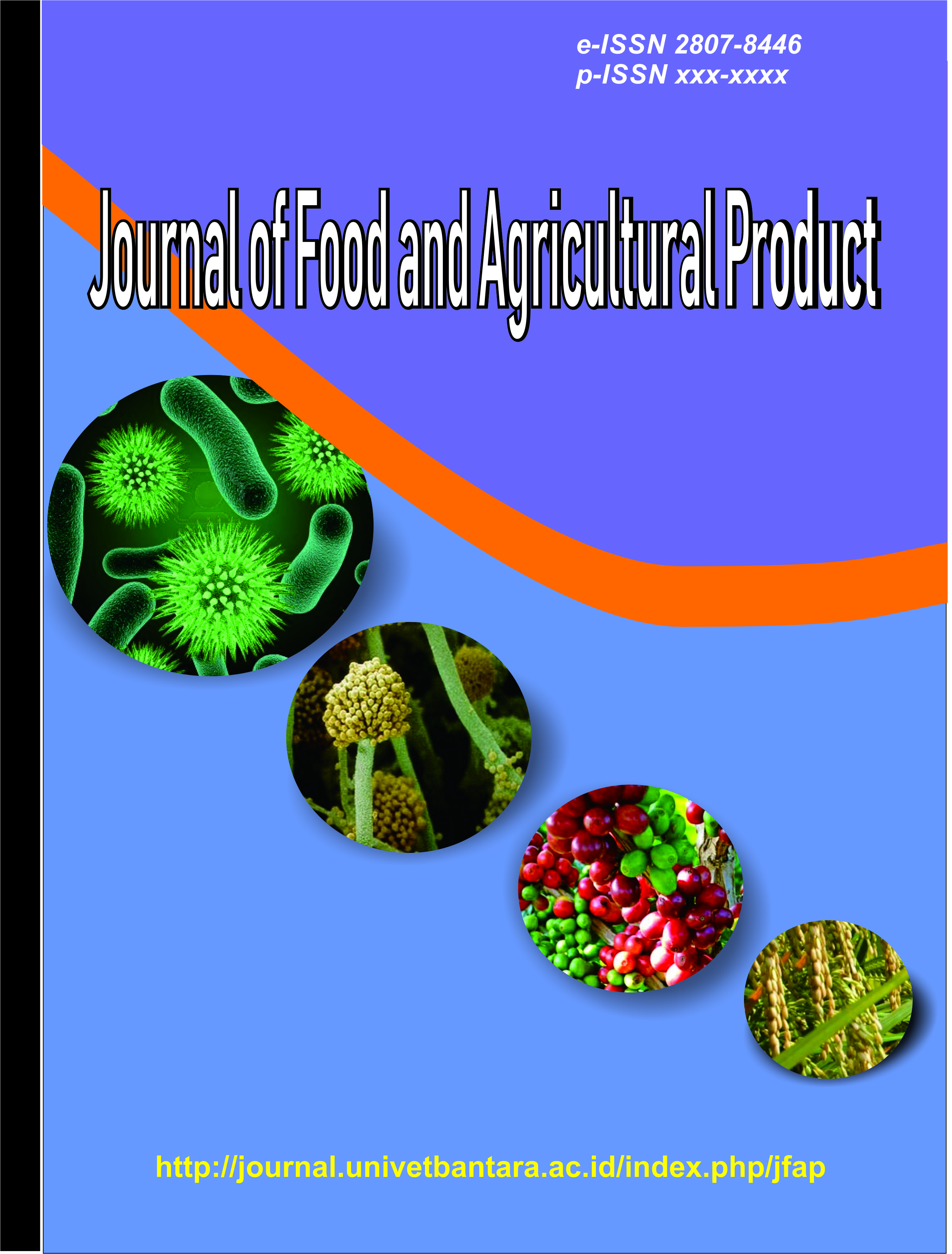Evaluation of Nutritional Content of Quail Eggs Bacem, Pindang, and Balado in Retort Pouch for Stunting Prevention
DOI:
https://doi.org/10.32585/jfap.v5i2.7246Abstract
Stunting remains a major chronic nutritional problem in Indonesia, especially among children in areas with limited food access. One of the main causes is the lack of high-quality animal protein intake. Quail eggs are a potential source of protein, fat, vitamins, and minerals, but are highly perishable and require processing and packaging innovations to extend shelf life and maintain nutritional quality. This study aimed to evaluate the moisture, protein, and fat content of bacem, pindang, and balado quail eggs in "ready to eat" retort pouch packaging as a strategy for stunting prevention. Samples were processed with three types of seasoning, packed, sterilized, and stored at 40°C, 50°C, and 60°C for 0 and 35 days. Moisture was analyzed by thermogravimetric method, protein by kjeldahl, and fat by soxhlet. Results showed that higher storage temperature and duration led to decreased moisture, protein, and fat in all product variants, especially at 60°C for 35 days. Nevertheless, nutritional values on day 35 remained sufficient to support dietary needs as an intervention food for stunting prevention. This innovation has the potential to support the distribution of nutritious food to stunting-prone areas.
Keywords: Stunting, Quail Eggs, Retort Pouch, Temperature, Day
Downloads
Downloads
Published
How to Cite
Issue
Section
License
Copyright (c) 2025 Diah Ayu Puspasari, Subekti Hartiningsih, Elisa Mariani

This work is licensed under a Creative Commons Attribution-NonCommercial-ShareAlike 4.0 International License.



